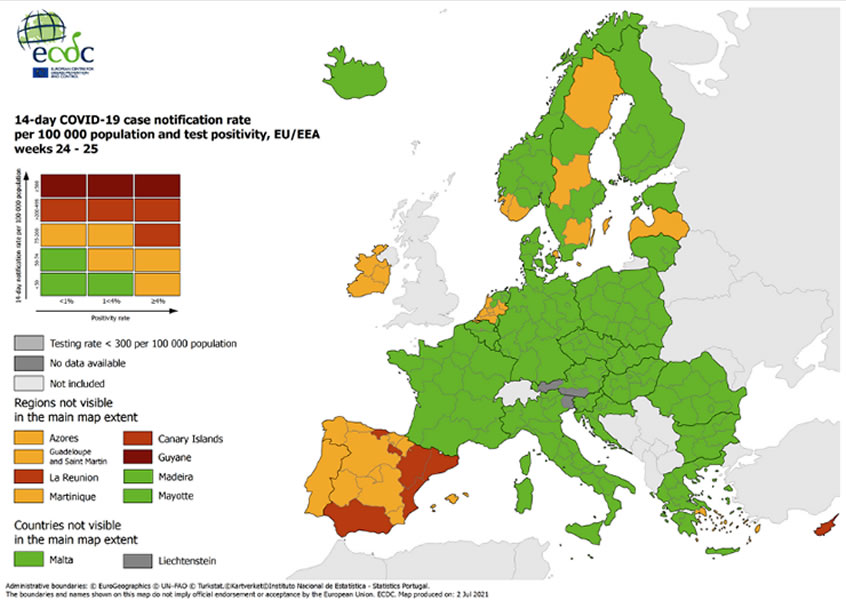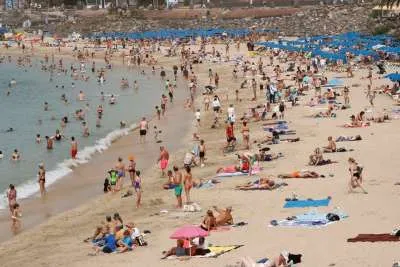The Canary Islands are now high risk (red) on the ECDC Covid map
- 05-07-2021
- National
- Canarian Weekly
The European Center for Disease Prevention and Control (ECDC) has updated their Covid map for risk locations, and seven parts of Spain are now in red for high risk of contagion, including the Canary Islands, and are only one of three places in the whole of Europe that are in red or dark red, the rest being amber or green.
Zones are classified as red if the cumulative rate of coronavirus cases over 14 days is between 75 and 200 and the positivity rate in detection tests is equal to or greater than 4%, or if just the cumulative rate is greater 200 but less than 500. If the IA14 is equal to or greater than 500, it is marked as dark red.
The seven Spanish autonomous communities in red are:
The Canary Islands – all islands count as one region.
Andalusia – includes Costa del Sol and Marbella.
Valencian Community - includes Costa Blanca and Benidorm.
Catalonia – includes Barcelona.
Aragon – northern Spain next to Catalonia.
Cantabria - northern Spain on French border.
La Rioja – just below Cantabria.
The rest of the regions of Spain, as well as Portugal, are in orange, which means that their notification rate in the last 14 days was less than 50 and that the positivity rate of tests was equal to or greater than 4%; or that the notification rate was equal to or greater than 50 and less than 75 and the positivity rate, equal to or greater than 1%.
Although the COVID certificate allows free movement within the European Union (EU), since it shows that the person completed their vaccination schedule fourteen days before the trip, the Belgian Minister of Health, Frank Vandenbroucke, has recommended today (Monday) to avoid travelling to Red areas due to high incidence, in case of not being fully vaccinated and appealed to the "common sense" of citizens when travelling this summer.
“Personally, I would not go to the Canary Islands or Catalonia if I were not vaccinated. It is not prohibited because there is freedom of movement and it is essential. But beyond the rules, there is still common sense," said Vandenbroucke in statements to the RTBF network.
Currently, more than 76% of Belgians over 18 have received their first dose, while 4 million have already had two doses. The country has proposed that 70% of its population be fully vaccinated, in September.
Other articles that may interest you...
Trending
Most Read Articles
Featured Videos
TributoFest: Michael Buble promo 14.02.2026
- 30-01-2026
TEAs 2025 Highlights
- 17-11-2025


























































